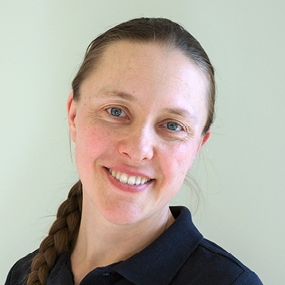Supervised Learning Events, formative or summative?

In the second in our blog series from College Tutor Dr Jenny Parsons, she examines the value of Supervised Learning Events.
I’m sat before the regional leads workshop screen, being reprogrammed like the protagonist in A Clockwork Orange. I’m slowly absorbing the new acronyms, but more importantly embracing the ethos, the reason this will all be worth it. It is fundamentally different from the current training programme, and yet it is sort of the same.
It’s all about Supervised Learning Events (SLEs). The thrust is that they are formative, not summative This means there is no minimum number that must be completed.
However, the Summative Assessment - the Holistic Assessment of Learning Outcome (HALO) process - relies heavily upon the SLEs among other evidence demonstrating that a trainee has achieved certain learning outcomes.
My cynicism and suspicion rears. It seems to me there is a minimum number of SLEs. I wonder if the College is planning on keeping that number a secret.
By the end of the workshop I could hazard a counter-argument.
Supposing there were a minimum number and a trainee submitted exactly that minimum number, but then at HALO assessment the Faculty determined that the evidence presented did not constitute enough proof that the trainee had achieved all aspects of the learning objectives. Then the aggrieved trainee would quite rightly claim they had been misled.
Producing the minimum number of assessments close to a deadline is what humans tend to do. Timing of a work-based assessment (WBA) is a familiar source of tension for trainees. They know they ‘need’ a WBA in something but are usually reluctant to ask for one until they consider themselves competent in that area. I welcome a move away from this dilemma.
Removing the minimum number requirement encourages trainees to do more SLEs. And it causes a more consistent acquisition.
There are now 14 domains at each level of training. Some of them vast. All require supporting evidence to show progress and achievement of ‘capabilities’. I remain open to persuasion that the ‘assessment burden’ is being reduced, but perhaps that’s just me falling into the trap of continuing to view an SLE as an assessment. The aim seems to be a significant increase in Supervised Learning Events, and for us all to embrace them as formative experiences.
I am left pondering how to build faith to use the SLEs bravely and formatively when the reality is they will still form a large part of summative assessment.
Meanwhile, I get on with the task of approving a couple of CBDs on Lifelong Learning. One of them in particular I recognise was a significant learning experience. The act of acknowledging as much has probably cemented the trainee’s learning. That’s all the College is trying to encourage with these new SLEs.
The new addition to the family is the A-QIPAT for quality improvement work. Other than that, we are familiar with the building blocks; the CBD, the ACEX, the ALMAT and the DOPS. This change should help us to use them better to support genuine learning and stop the unnecessary game of WBA bingo.
Dr Jenny Parsons
